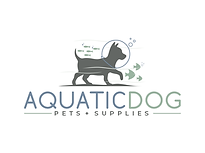I wish more people knew that you shouldn't let your brand new puppy have access to the entire house as soon as they come home ...
- petsplusllc
- Feb 3, 2023
- 3 min read
Updated: Jan 1
And you DEFINITELY shouldn't feel guilty about keeping them contained. For some reason everyone feels that their puppy has to be roaming all day long or they aren't happy. Puppies are like toddlers, they need their naps, and they are guaranteed to get in trouble if left unsupervised.
The first advice we give new puppy owners is to keep their puppy on a schedule for the first several weeks. If mealtimes are given around the same time each day, then pees and poops typically happen around the same times each day as well. This makes potty training a breeze.

The second best piece of advice is to have a contained space for your puppy. Setting up a quiet, safe space to facilitate proper napping is important for young puppies. Puppies can sleep up to 16-18 hours a day, but bare minimum need several 4 to 5 hour naps each day.
It can feel overwhelming at first with the amount of information the internet throws at dog owners. Below is a list of basic necessities we feel would benefit all puppy owners:
1. Food and water bowls: Puppies need appropriately sized bowls. Stainless steel is easy to sanitize and keep clean. Some stainless bowls come with non skid coating on the bottom. Bonus they also come in fun colors!

2. Food: Ask what food your puppy has been eating previously, so you can continue with the same diet. Changing the diet too quickly can cause diarrhea and upset tummy. We recommend keeping them on the same, limited, diet for two weeks if possible before switching the diet or adding anything new.
3. Leash, harness, and collar: A sturdy, lightweight harness and leash are essential for walks and training. We love the bark appeal line of step in harnesses for our puppies, they fit tiny, wiggly bodies perfectly! Your microchip or other identification tags will also attach to your collar, so your puppy gets home safely.
4. Crate & Expanding Play Pens: A crate can be used for potty training, as well as providing a safe place for your puppy to nap. Acclimating your puppy to a crate when young helps prevent stress later on when they have to be transported in a crate. An expanding pen offers a safe space to relax and hang out when you are not able to directly supervise your new puppy.
5. Potty training pads & Enzymatic cleaners/Poop bags: Puppies need to be potty trained, and these materials can help with that process. Many cities have ordinances prohibiting leaving behind dog waste so we always recommend grabbing a roll of poop bags when you visit.

6. Toys: Puppies need to chew and play, so providing them with a variety of toys helps to satisfy their needs. Chewing releases serotonin in the brain of your puppy, so we want them to have access to appropriate chew toys. These are often made of durable materials like nylon and rubber. We find that having a few durable toys that can be rotated helps keep interest high.

7. Grooming supplies: Especially for young puppies a waterless bath, or bath wipes can be a low stress way to keep them smelling fresh. Nail clippers can be handy for keeping toenails trim. Many nonshedding breeds will need daily brushing with a metal comb that goes to skin level to help prevent matting. Pin brushes work well with some of the double coated breeds. Another item not to forget is a good shampoo and conditioner, a gentle type made with oatmeal is great for sensitive puppy skin.
8. Bedding: A comfortable bed or pad can give your puppy their own space to retreat to and take their long daily naps on. Something easily washable works best when your puppy in young.
9. Identification: A microchip or ID tag will ensure your puppy can be returned to you if they get lost. We have an engraving machine available in the store to customize your contact info on your dog's tag.
10. Training Tools: Treats, treat bags, clickers, or even potty bells are all useful tools to help train your puppy.
Also, it's important to have a vet check-up schedule for your new puppy, it takes several rounds of vaccination spaced out throughout the first year or so of your puppy's life to have full immunity against the diseases those vaccines are meant to prevent.
We recommend getting your new puppy into the vet within the first week or so to ensure they are healthy and transitioning well to a life away from their littermates, and to keep them up to date on vaccinations.




